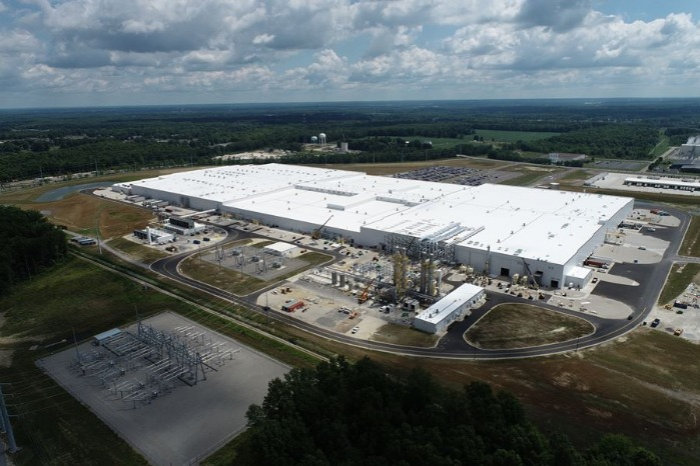Batteries
LG Energy-GM JV secures $2.5 bn loan from US for EV battery production
It is the 1st loan exclusively for a battery cell project under the US' Advanced Technology Vehicles Manufacturing program
By Dec 13, 2022 (Gmt+09:00)
1
Min read
Most Read
LG Chem to sell water filter business to Glenwood PE for $692 million


KT&G eyes overseas M&A after rejecting activist fund's offer


Kyobo Life poised to buy Japan’s SBI Group-owned savings bank


StockX in merger talks with Naver’s online reseller Kream


Meritz backs half of ex-manager’s $210 mn hedge fund



South Korean battery maker LG Energy Solution Ltd. said on Wednesday its joint venture with General Motors Co. has attracted $2.5 billion via a loan program from the US Department of Energy (DOE) to expand the production capacity of the JV’s lithium-ion battery plants across the US.
The investment followed the DOE's announcement in July that the US government has made a conditional commitment to the plants' construction, which supports GM's plan to build 1 million EVs in North America by end-2025 and achieve carbon neutrality by 2040.
The loan will be provided at an interest rate similar to that of the US Treasury, said LG Energy, the world’s second-largest electric vehicle battery maker. The 10-year US Treasury rate closed at 3.61% on Dec. 12, around 200 basis points lower than the 5-6% rate of AA corporate bonds with two to five years' maturity in the Korean market, LG Energy stated.
Ultium Cells LLC, the JV, started mass production of its Ohio-based EV battery plant in November and is constructing one factory in Tennessee and one in Michigan.
The JV said in early December that it will inject an additional $275 million in the Tennessee plant to increase production capacity by 40%. Ultium Cells plans to begin mass production at the facilities in Tennessee and Michigan in 2025 and ramp up the three plants’ total annual production capacity to 145 gigawatt-hours (GWh), enough to manufacture 2 million units of high-performance EVs.
The loan is expected to create more than 11,000 jobs, including 6,000 in construction and 5,100 in operations, across the three facilities, the DOE stated.
The financing is the first closed loan exclusively for a battery cell manufacturing project under the Advanced Technology Vehicles Manufacturing (ATVM) program through the US government’s Loan Programs Office (LPO), the DOE announced.
Financing from the ATVM program complements US President Biden’s Bipartisan Infrastructure Law, which provides $7.5 billion for EV charging infrastructure and more than $7 billion to facilitate supply chains for the critical minerals for batteries, components, materials and recycling.
Write to Hyung-Kyu Kim at khk@hankyung.com
Jihyun Kim edited this article.
More to Read
-
 BatteriesLG Energy, GM to inject another $275 mn in Tennessee plant
BatteriesLG Energy, GM to inject another $275 mn in Tennessee plantDec 04, 2022 (Gmt+09:00)
1 Min read -
 BatteriesLG Energy Solution diversifies supply chains to respond to US IRA
BatteriesLG Energy Solution diversifies supply chains to respond to US IRANov 11, 2022 (Gmt+09:00)
1 Min read -
 BatteriesLG Energy set to ink graphite deal with Australia’s Syrah Resources
BatteriesLG Energy set to ink graphite deal with Australia’s Syrah ResourcesOct 20, 2022 (Gmt+09:00)
2 Min read -

-

Comment 0
LOG IN


